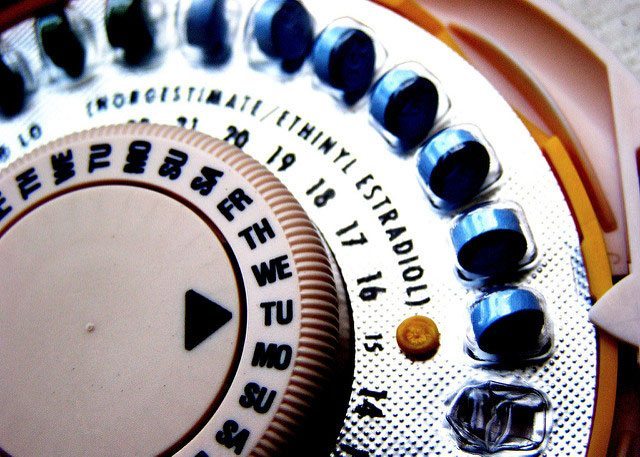Women's Health
Drugs and medical devices can have a significant impact on women's health. Find out which products put women most at risk.
About Women’s Health
 Too often, women’s health is put at risk because of inadequate testing by drug and medical device manufacturers. Some drug companies have focused more on driving higher profits than on ensuring a product’s safety. On average, women take more medications than men; despite this, manufacturers often overlook their specific needs when screening a product for release.
Too often, women’s health is put at risk because of inadequate testing by drug and medical device manufacturers. Some drug companies have focused more on driving higher profits than on ensuring a product’s safety. On average, women take more medications than men; despite this, manufacturers often overlook their specific needs when screening a product for release.
For years, many manufacturers believed that men and women were fundamentally the same (with the exception of reproduction). In reality, the sexes metabolize drugs much differently from one another. For example, women have a higher percentage of body fat, experience more hormonal fluctuations and take longer to digest than men. However, many clinical trials were only performed on men in order to lower overall costs. Applying results from male-only testing ignores gender-specific drug effects, which are men’s and women’s diverse reactions to a certain drug. As a result, approximately 80 percent of drugs removed from the market are due to side effects on women.
Although a number of pharmaceutical drugs have proven to negatively impact women’s health, companies keep them on the shelves and continue to push any potential benefits. Unfortunately, it usually takes extreme circumstances to get the attention of the manufacturer. Some pharmaceutical drugs with the greatest effect on women’s health include:
- Hormone replacement therapy
- Birth control
- Fertility treatment
- Antidepressants
- Osteoporosis prescriptions
Hormone Replacement Therapy
 One of the most common drugs for older women, hormone replacement therapy (HRT) is used for treating symptoms of menopause. While some women make it through menopause without much complication, others encounter unbearable symptoms that affect their everyday life. When HRTs came along, manufacturers aggressively promoted their ability to help menopausal women prevent heart disease and provide other health benefits.
One of the most common drugs for older women, hormone replacement therapy (HRT) is used for treating symptoms of menopause. While some women make it through menopause without much complication, others encounter unbearable symptoms that affect their everyday life. When HRTs came along, manufacturers aggressively promoted their ability to help menopausal women prevent heart disease and provide other health benefits.
Over time, the damaging side effects and lasting consequences of HRT came to light. Several serious health complications were caused by HRT, including:
- Breast cancer
- Ovarian cancer
- Heart disease
- Blood clots
- Stroke
In the case against Pfizer’s Prempro, more than 10,000 women filed a claim against the menopause drug for causing breast cancer. Although still currently on the market, Prempro has lost many of its consumers since the release of the Women’s Health Initiative study that warned of the increased risks. Manufacturers continue to market HRT drugs as a preventive measure for menopause symptoms despite serious public claims about their health risks.
Birth Control
 Used to prevent an unwanted pregnancy, birth control gained popularity among women once it was released. An estimated 62 percent of women in the U.S. use birth control regularly. For years, health concerns linked to a number of these drugs were disregarded by the multi-billion-dollar birth control industry. In order to get the drug in consumers’ hands quicker, some products passed through with very little study. Additionally, some manufacturers failed to warn women of the severe side effects ranging from blood clots to strokes, heart attack or sudden death.
Used to prevent an unwanted pregnancy, birth control gained popularity among women once it was released. An estimated 62 percent of women in the U.S. use birth control regularly. For years, health concerns linked to a number of these drugs were disregarded by the multi-billion-dollar birth control industry. In order to get the drug in consumers’ hands quicker, some products passed through with very little study. Additionally, some manufacturers failed to warn women of the severe side effects ranging from blood clots to strokes, heart attack or sudden death.
Yaz and Yasmin birth controls are an example of this. Lawsuits continue to stack up against Bayer Pharmaceuticals as women are saying that the company downplayed serious side effects. To date, thousands of injuries and approximately 100 deaths have been linked to Yaz. Nevertheless, Yaz remains on the market; however, it now has a black box warning – the FDA’s most serious label – on its packaging to warn women of the drug’s harmful side effects.
Fertility Treatment
 Infertility affects more than 1.5 million women in the U.S. Of those, approximately 85-90% of cases are treated with drug therapy or surgical procedures. As women struggle with infertility issues, a growing number of manufacturers are quickly releasing new drugs to the market. Each one claims their product’s effectiveness, citing it offers the highest possible conception rate. Unfortunately, many manufacturers neglect to mention the dangerous side effects – and lasting repercussions – these drugs may cause.
Infertility affects more than 1.5 million women in the U.S. Of those, approximately 85-90% of cases are treated with drug therapy or surgical procedures. As women struggle with infertility issues, a growing number of manufacturers are quickly releasing new drugs to the market. Each one claims their product’s effectiveness, citing it offers the highest possible conception rate. Unfortunately, many manufacturers neglect to mention the dangerous side effects – and lasting repercussions – these drugs may cause.
Fertility drugs can cause serious or even life-threatening side effects, such as:
- Multiple gestation
- Ovarian hyperstimulation syndrome
- Adnexal torsion (ovarian twisting)
- Cancer
- Ectopic (tubal) pregnancies, which can be deadly
Clomid, an ovulation medication, has faced significant setbacks after serious and life-threatening birth defects were revealed after use. Studies point to Clomid possibly remaining in a mother’s system in the initial weeks of pregnancy, putting the fetus at risk.
Infertile women who forego these powerful, and potentially harmful, drugs may want to evaluate other options. Poor nutrition, lack of sleep, high stress levels, exposure to harmful chemicals and lack of exercise are all factors that can contribute to the inability to conceive. Additionally, some vitamins and herbs – red raspberry leaf, nettle leaf, folate, zinc and b-vitamins – are said to help boost fertility.
Antidepressants
 Mental health issues – like depression – affect women’s appetites, work, ability to sleep and overall happiness. In fact, the Substance Abuse and Mental Health Services Administration (SAMHSA) estimates that approximately 23.8 percent of women have experienced a diagnosable mental health disorder in the last year, compared to an estimated 15.6 percent of men. Doctors often prescribe prescription drugs to women suffering from depression.
Mental health issues – like depression – affect women’s appetites, work, ability to sleep and overall happiness. In fact, the Substance Abuse and Mental Health Services Administration (SAMHSA) estimates that approximately 23.8 percent of women have experienced a diagnosable mental health disorder in the last year, compared to an estimated 15.6 percent of men. Doctors often prescribe prescription drugs to women suffering from depression.
There’s been a notable rise in the amount of damaging side effects reported in women who use antidepressants, including suicidal thoughts and feelings, violent behavior, strokes, permanent brain damage, stillbirths, and death. Frequently, additional medications are prescribed to women on antidepressants to regulate the original drug. For instance, a drug that causes anxiety will often be prescribed with a sedative to balance it out.
In a number of instances, women experienced withdrawal reactions when attempting to stop taking their antidepressant medication. Lawsuits have been filed against Eli Lilly, the manufacturer of Cymbalta, for not making the risk of severe withdrawal known to consumers. Withdrawal symptoms from Cymbalta included nausea, vomiting, insomnia, vertigo, nightmares and diarrhea.
With the long-term risks of mental health drugs, women are looking for additional ways to combat depression. Health professionals may recommend physical activity, roseroot and other herbal supplements and practicing mindfulness to help reduce symptoms. Mindfulness-based cognitive therapy may be an alternative to antidepressants eliminates depression triggers by retraining the brain to respond differently to thoughts.
Osteoporosis Prescriptions
 Between the ages of 35-40, women’s bones begin to break down, making them weaker and more fragile. Around the time of menopause, doctors may prescribe drugs to prevent further bone loss, even in cases where the medication is unneeded.
Between the ages of 35-40, women’s bones begin to break down, making them weaker and more fragile. Around the time of menopause, doctors may prescribe drugs to prevent further bone loss, even in cases where the medication is unneeded.
As manufacturers work to strengthen their position in the market, safety issues are discounted. The lack of attention to side effects caused by these drugs puts many women in harm’s way.
Osteoporosis prescriptions can have life-changing consequences, such as:
- Esophageal cancer
- atrial fibrillation (abnormal heart rhythm)
- Osteonecrosis of the jaw
Merck & Co Inc. faced thousands of allegations about their drug Fosamax causing bones in the jaw to deteriorate – also referred to as Dead Jaw Syndrome. The severe side effect ultimately causes the jawbone to die leaving patients with huge medical bills, lost wages and suffering.
To help protect bone and muscle health over time, Women should also consider exercising regularly, getting sufficient amounts of calcium and Vitamin D, balance training and consuming an alkalizing diet.
Get the Help you Deserve
Currently, there’s a lack of information about the dangerous side effects and risks associated with many drugs and medical devices. If you or a loved one has experienced detrimental health problems related to a defective drug or medical device, hold the manufacturer accountable for their actions and get compensation to help restore your quality of life.
Last Edited: February 2, 2017